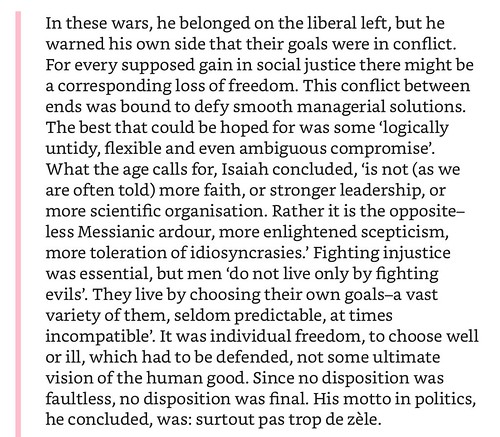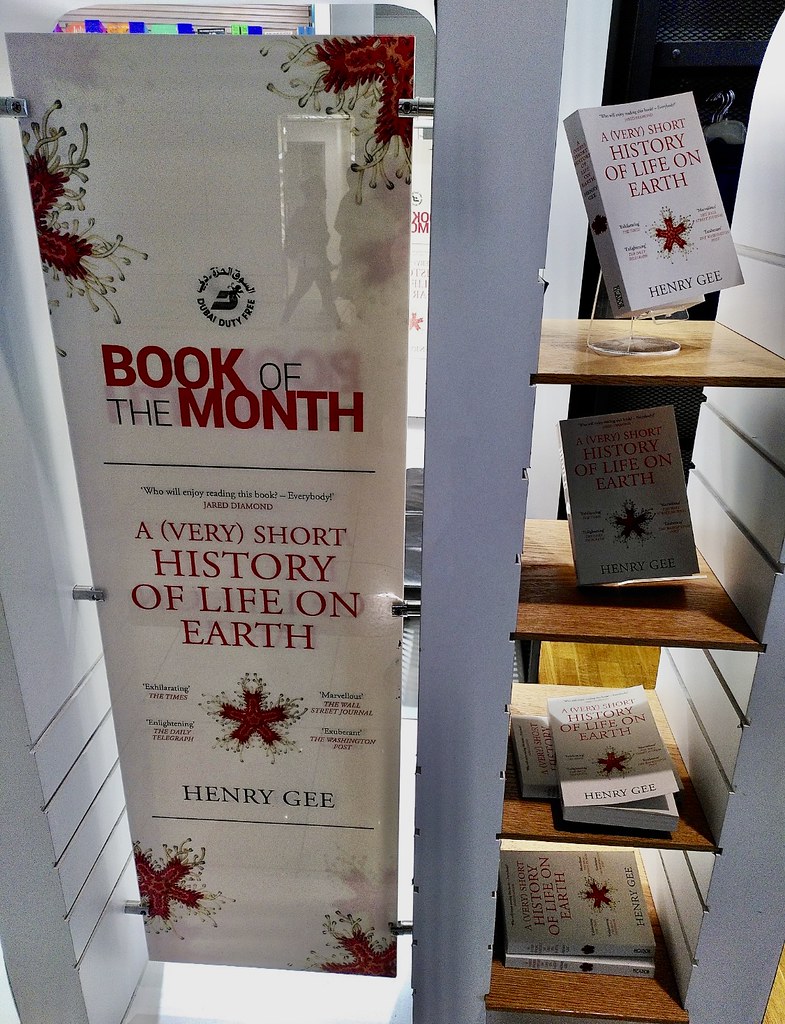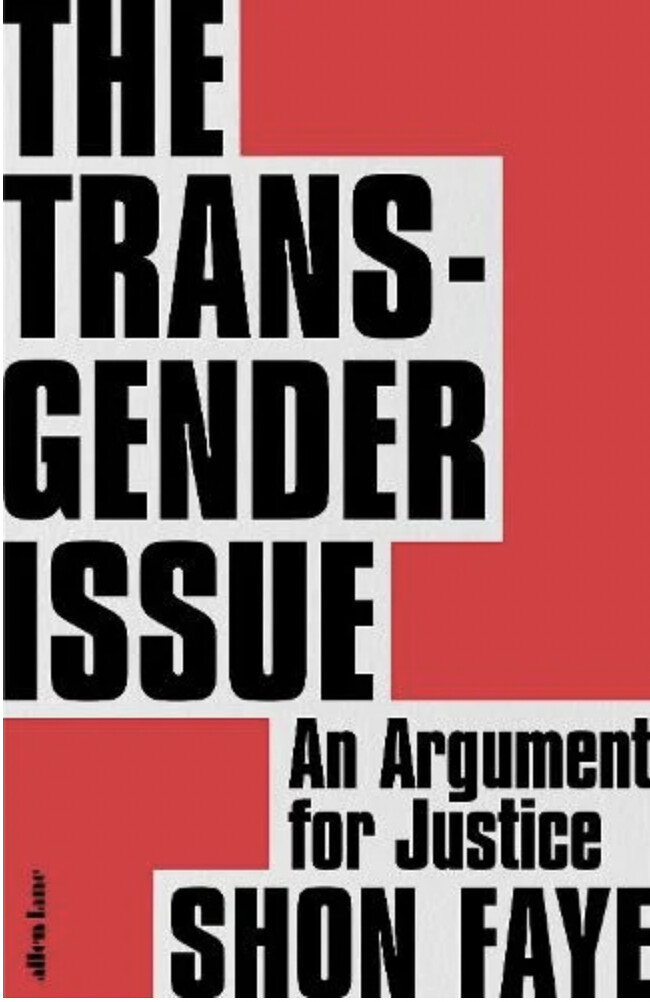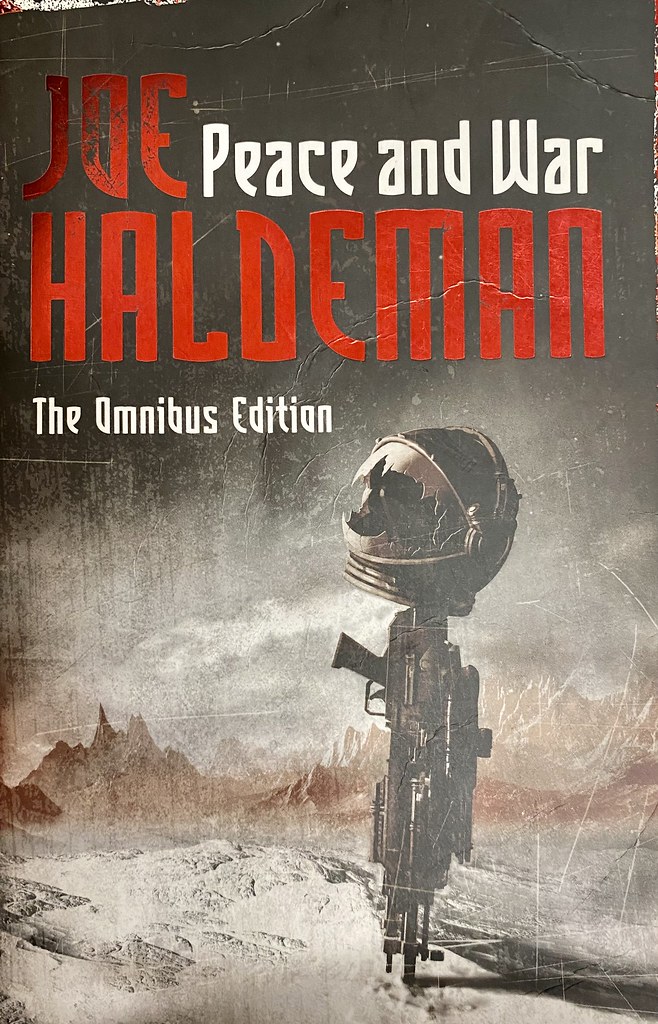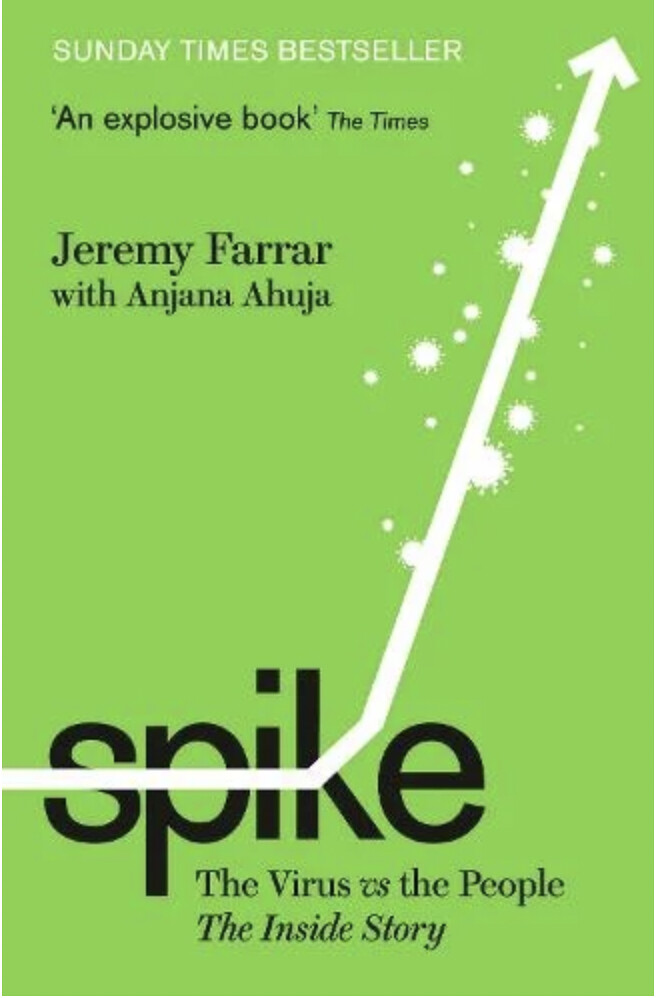 Shon Faye: The Transgender Issue I was alerted to this by Stephen: it was something of an eye-opener. From the amount of newsprint and airtime devote to trans people, you’d think they were engaged in a full-scale invasion. Shon Faye shows that they constitute a near-negligible proportion of the population and are oppressed in every way by a majority that would rather they didn’t exist and will go some considerable way to fulfilling that desire. Marginalised, they, like many other minorities, struggle to find employment and are over-represented in the gig economy and sex work. Demonised by the right-leaning press as woke snowflakes that want to shut down free speech: exhibited by the left-leaning press largely as a problem for feminism, the regular person is entitled to ask what’s really going on — and Shon Faye tells us. (Aside: I was brought up by my mother, a WI stalwart, listening to Woman’s Hour on the radio. She hadn’t listened to it for years, she said, as it had been more concerned these days with gender politics than issues that were, to her, of greater interest. I switched on and was immediately pitched into a furious argument between a radical feminist and a trans person. In the old days, I thought, audiences could be titillated by bear-baiting. I switched off). The fact is that nobody wants to be trans as a kind of woke fashion accessory. People transition because they must. What commentators of all political stripes lack is the lived experience, and this is supplied by Shon Faye, though she is at pains to point out that this is not a memoir, rather a survey of how trans people at all stages of life have to negotiate the world. The Transgender Issue is unapologetically left-wing in tone, which is fair enough, but one does get the impression it is preaching to the choir, when it deserves to be read far outside activist or LGBTQ+ circles. When Faye turns from ideology to pragmatic politics, she is absolutely compelling. A section on prisons, for example, articulates why the UK’s current penal system needs reform. Not for ideological reasons, but because prison doesn’t work as a means either of reducing crime or rehabilitating offenders, most of whom shouldn’t be locked up anyway. It is tempting, as a reviewer, to wish for a book the author hadn’t written. There is a lot — necessarily so — on the often fraught relations between the trans community and others in the LGBTQ+ rainbow, and, yes, with feminists. This might give ammunition to those conservatives who wish to find divisions and exploit them (Faye is well aware of this, and gives examples of unholy alliances between religious conservatives and anti-trans feminists) but very little about how gender ideation in our societies is conditioned by religious tradition, and nothing at all about the participation of trans people in sport — another topic of seemingly obsessive interest by legislators, and, therefore, news media. After reading this book, though, I am convinced that the most fundamental human right must be that a person should have absolute autonomy over their own body. Nobody else — not politicians, not priests, not doctors, not psychiatrists — should be able to gainsay a person’s gender identity. In an ideal world, people should be judged by the content of their character, not the content of their underpants. Full disclosure: I identify as a cis heterosexual white male who supports Norwich City FC and although socially liberal, generally votes conservative. And yet this book derailed my political outlook. In other words, it does what all books attempt but few achieve — it can change peoples’ minds. It might help that I have a son who is trans and who has introduced me to wonderful people in the queer community. But I am also a member of a historically oppressed and ‘othered’ minority and as such I was struck by this passage:
Shon Faye: The Transgender Issue I was alerted to this by Stephen: it was something of an eye-opener. From the amount of newsprint and airtime devote to trans people, you’d think they were engaged in a full-scale invasion. Shon Faye shows that they constitute a near-negligible proportion of the population and are oppressed in every way by a majority that would rather they didn’t exist and will go some considerable way to fulfilling that desire. Marginalised, they, like many other minorities, struggle to find employment and are over-represented in the gig economy and sex work. Demonised by the right-leaning press as woke snowflakes that want to shut down free speech: exhibited by the left-leaning press largely as a problem for feminism, the regular person is entitled to ask what’s really going on — and Shon Faye tells us. (Aside: I was brought up by my mother, a WI stalwart, listening to Woman’s Hour on the radio. She hadn’t listened to it for years, she said, as it had been more concerned these days with gender politics than issues that were, to her, of greater interest. I switched on and was immediately pitched into a furious argument between a radical feminist and a trans person. In the old days, I thought, audiences could be titillated by bear-baiting. I switched off). The fact is that nobody wants to be trans as a kind of woke fashion accessory. People transition because they must. What commentators of all political stripes lack is the lived experience, and this is supplied by Shon Faye, though she is at pains to point out that this is not a memoir, rather a survey of how trans people at all stages of life have to negotiate the world. The Transgender Issue is unapologetically left-wing in tone, which is fair enough, but one does get the impression it is preaching to the choir, when it deserves to be read far outside activist or LGBTQ+ circles. When Faye turns from ideology to pragmatic politics, she is absolutely compelling. A section on prisons, for example, articulates why the UK’s current penal system needs reform. Not for ideological reasons, but because prison doesn’t work as a means either of reducing crime or rehabilitating offenders, most of whom shouldn’t be locked up anyway. It is tempting, as a reviewer, to wish for a book the author hadn’t written. There is a lot — necessarily so — on the often fraught relations between the trans community and others in the LGBTQ+ rainbow, and, yes, with feminists. This might give ammunition to those conservatives who wish to find divisions and exploit them (Faye is well aware of this, and gives examples of unholy alliances between religious conservatives and anti-trans feminists) but very little about how gender ideation in our societies is conditioned by religious tradition, and nothing at all about the participation of trans people in sport — another topic of seemingly obsessive interest by legislators, and, therefore, news media. After reading this book, though, I am convinced that the most fundamental human right must be that a person should have absolute autonomy over their own body. Nobody else — not politicians, not priests, not doctors, not psychiatrists — should be able to gainsay a person’s gender identity. In an ideal world, people should be judged by the content of their character, not the content of their underpants. Full disclosure: I identify as a cis heterosexual white male who supports Norwich City FC and although socially liberal, generally votes conservative. And yet this book derailed my political outlook. In other words, it does what all books attempt but few achieve — it can change peoples’ minds. It might help that I have a son who is trans and who has introduced me to wonderful people in the queer community. But I am also a member of a historically oppressed and ‘othered’ minority and as such I was struck by this passage:
Moral panics rely on an inherent paradox: that the rights of a small minority of the population wielding little institutional power are in fact a risk to the majority. This is achieved by inciting in the population a mixture of moral disgust and anxiety about contagion.
Sound like anyone you know?
 Joe Haldeman: Peace and War Three novels in one here, what the book clubs would call ‘counts as one choice’. The first, The Forever War, published in 1974, is SF as Vietnam aftershock (based on the author’s own Vietnam experience), and rightly hailed as a genre classic. William Mandella is one of Earth’s brightest and best, conscripted to fight the alien Taurans. But constant accelerations to sizeable fractions of light speed means that when his tour is over, relativity ensures that all his friends and family are dead, and even society has changed to the edge of unintelligibility. The only thing he can do is re-enlist. The sequel, Forever Free (1999), follows Mandella and the veterans as they try and fail to settle down on the subarctic planet of Middle Finger, chafing against the homogeneous and authoritarian mass that the human race has become. It’s a bit of a plod, and overcompensates in the final ten pages when it goes a bit loopy. Forever Peace is connected with the first two only thematically, in that the protagonists are reluctant soldiers trying to bring an end to warfare. It’s set in the mid-21st century in which the United States uses remotely controlled soldiers or ‘soldier boys’ to wage a seemingly never-ending war on a hydra-like profusion of rebel groups in the failed states of the global south. Mix in a vast particle physics experiment that has the potential to suck the cosmos into a black hole, with a conspiracy of Christian fundamentalists and white supremacists who’ll stop at nothing to see this happen, and parts of the novel, written in 1997, seem horribly prescient. It’s an enjoyable read, though the author tends to get bogged down in unnecessary details of the characters’ daily lives, a phenomenon known to SF writers as ‘Squid-On-The-Mantelpiece‘ in which the prospect of imminent apocalypse renders as tedious any attempt to dramatise the everyday.
Joe Haldeman: Peace and War Three novels in one here, what the book clubs would call ‘counts as one choice’. The first, The Forever War, published in 1974, is SF as Vietnam aftershock (based on the author’s own Vietnam experience), and rightly hailed as a genre classic. William Mandella is one of Earth’s brightest and best, conscripted to fight the alien Taurans. But constant accelerations to sizeable fractions of light speed means that when his tour is over, relativity ensures that all his friends and family are dead, and even society has changed to the edge of unintelligibility. The only thing he can do is re-enlist. The sequel, Forever Free (1999), follows Mandella and the veterans as they try and fail to settle down on the subarctic planet of Middle Finger, chafing against the homogeneous and authoritarian mass that the human race has become. It’s a bit of a plod, and overcompensates in the final ten pages when it goes a bit loopy. Forever Peace is connected with the first two only thematically, in that the protagonists are reluctant soldiers trying to bring an end to warfare. It’s set in the mid-21st century in which the United States uses remotely controlled soldiers or ‘soldier boys’ to wage a seemingly never-ending war on a hydra-like profusion of rebel groups in the failed states of the global south. Mix in a vast particle physics experiment that has the potential to suck the cosmos into a black hole, with a conspiracy of Christian fundamentalists and white supremacists who’ll stop at nothing to see this happen, and parts of the novel, written in 1997, seem horribly prescient. It’s an enjoyable read, though the author tends to get bogged down in unnecessary details of the characters’ daily lives, a phenomenon known to SF writers as ‘Squid-On-The-Mantelpiece‘ in which the prospect of imminent apocalypse renders as tedious any attempt to dramatise the everyday.
 Edward Gibbon: The Decline and Fall of the Roman Empire (Folio Society Edition) – Vol 6. This volume is, like Gaul, divided into three parts. The first is an extended essay on the internecine warfare between early Christian sects about the nature of the Incarnation, which, like the earlier arguments about the nature of the Trinity, Gibbon finds as exasperating as we do. So much ink — and blood — spilled over distinctions so fine as to be invisible. Comparing two of the various schismatic sects:
Edward Gibbon: The Decline and Fall of the Roman Empire (Folio Society Edition) – Vol 6. This volume is, like Gaul, divided into three parts. The first is an extended essay on the internecine warfare between early Christian sects about the nature of the Incarnation, which, like the earlier arguments about the nature of the Trinity, Gibbon finds as exasperating as we do. So much ink — and blood — spilled over distinctions so fine as to be invisible. Comparing two of the various schismatic sects:
… their intestine divisions are more numerous, and their doctors (as far as I can measure the degrees of nonsense) are more remote from the precincts of reason.
There’s a mess in ‘ere, but no Messiah. And if that wasn’t enough, the Byzantines get themselves embroiled in a furore about whether the adoration of icons counts as idolatry, as if the profusion of saints and martyrs, miracles and relics didn’t already count as some kind of backsliding into polytheism.
In the long night of superstition the Christians had wandered far away from the simplicity of the Gospel: nor was it easy for them to discern the clue, and tread back the mazes of the labyrinth.
The second part is a chronological, one-damned-thing-after-another treatment of the decline of the Byzantine Empire as far as their conquest by the Crusaders, a sixty-monarch, six-hundred-year canter through time compressed into a few pages. Gibbon himself feels it a bit rushed:
In a composition of some days, in a perusal of some hours, six hundred years have rolled away, and the duration of a life or reign is contracted to a fleeting moment: the grave is ever beside the throne; the success of a criminal is almost instantly followed by the loss of his prize; and our immortal reason survives and disdains the sixty phantoms of kings who have passed before our eyes, and faintly dwell on our remembrance.
This telescoped treatment, however, allows Gibbon to reflect on the point of it all, the struggles of the various Michaels and Basils and Leos and Borises and Rishis and Constantines (all of whom are appalling) up the greasy imperial pole:
Was personal happiness the aim and object of their ambition? I shall not descant on the vulgar topics of the misery of kings; but I may surely observe that their condition, of all others, is the most pregnant with fear, and the least susceptible of hope.
Then there is an excursion into the reign of Charlemagne and whether the Frankish Empire was in any sense Holy or Roman. But all this is hors-d’oeuvres to the main dish, an examination of ‘one of the most memorable revolutions which have impressed a new and lasting character on the nations of the globe’ — the sudden emergence and rapid spread of Islam. This appeared from, almost literally, nowhere, and spread from the Indus to the Atlantic in the space of a century. Its success is partly attributable to its emergence at a time when the Roman and Persian Empires were at their weakest.
The birth of Mohammed was fortunately placed in the most degenerate and disorderly period of the Persians, the Romans, and the barbarians of Europe; the empires of Trajan, or even Constantine or Charlemagne, would have repelled the assaults of the naked Saracens, and the torrent of fanaticism might have been obscurely lost in the sands of Arabia.
Part of Islam’s appeal, though, is its simplicity:
‘I believe in one God, and Mohammed is the apostle of God’, is the simple and invariable profession of Islam. The intellectual image of the Deity has never been degraded by any visible idol; the honours of the prophet have never transgressed the measure of human virtue; and his living precepts have restrained the gratitude of his disciples within the bounds of reason and religion.
What a refreshing contrast, Gibbon seems to say, with the sterile complexities of Christian theology:
… the religion of Mohammed might seem less inconsistent with reason than the creed of mystery and superstition which, in the seventh century, disgraced the simplicity of the Gospel.
 Jeremy Farrar and Anjana Ahuja: Spike Passionate, polemical and partisan, this is a first-hand account of the first year or so of the Coronavirus pandemic from one at the eye of the storm. Farrar is the Director of the Wellcome Trust, an expert on the spread of epidemics, and was a member of SAGE, the group of scientists advising the UK government on policy — if only the government cared to listen. Ahuja is a journalist who pulled Farrar’s diary of the plague year into the form of something like a thriller. The large cast of characters and the forest of organisational acronyms can be hard to navigate but there’s a helpful glossary and dramatic personae at the end. This is very much a view from the trenches and does not count as a comprehensive history of the pandemic, for much is omitted. There is almost nothing on, say, the efficacy of wearing masks; the studies showing that the virus does not live on surfaces; and the pernicious effects of the anti-vaccination movement. And although the author does like to take political pot shots, his view is selective. He discusses the former (Labour) Prime Minister Gordon Brown (with whom he is on first-name terms) although his role was peripheral, yet nowhere at all does he mention the (Conservative) then-Chancellor Rishi Sunak and his colleagues at the Treasury whose heroic work kept the economy alive during the lockdown. Although it is regrettably true that the Conservative Party is historically very poor at understanding science, balance should not be a casualty of the author’s understandable frustration. Nevertheless, when the history of the pandemic comes to be written, this will be important source material. Shortlisted for the Royal Society Science Book Prize 2022 (DISCLAIMER: I also have a dog in that fight).
Jeremy Farrar and Anjana Ahuja: Spike Passionate, polemical and partisan, this is a first-hand account of the first year or so of the Coronavirus pandemic from one at the eye of the storm. Farrar is the Director of the Wellcome Trust, an expert on the spread of epidemics, and was a member of SAGE, the group of scientists advising the UK government on policy — if only the government cared to listen. Ahuja is a journalist who pulled Farrar’s diary of the plague year into the form of something like a thriller. The large cast of characters and the forest of organisational acronyms can be hard to navigate but there’s a helpful glossary and dramatic personae at the end. This is very much a view from the trenches and does not count as a comprehensive history of the pandemic, for much is omitted. There is almost nothing on, say, the efficacy of wearing masks; the studies showing that the virus does not live on surfaces; and the pernicious effects of the anti-vaccination movement. And although the author does like to take political pot shots, his view is selective. He discusses the former (Labour) Prime Minister Gordon Brown (with whom he is on first-name terms) although his role was peripheral, yet nowhere at all does he mention the (Conservative) then-Chancellor Rishi Sunak and his colleagues at the Treasury whose heroic work kept the economy alive during the lockdown. Although it is regrettably true that the Conservative Party is historically very poor at understanding science, balance should not be a casualty of the author’s understandable frustration. Nevertheless, when the history of the pandemic comes to be written, this will be important source material. Shortlisted for the Royal Society Science Book Prize 2022 (DISCLAIMER: I also have a dog in that fight).
 Nick Davidson: The Greywacke Cast your mind back to the early nineteenth century when two titans of geology — the ambitious, social climbing ex-soldier Roderick Murchison and the mild-mannered cleric Adam Sedgwick sought to map the confusing jumble of rocks that was Wales. Back in the day, everything older than the Old Red Sandstone was a muddle called the Greywacke, and this is the story about how it gave up its secrets. In the end, Murchison’s Silurian trumped Sedgwick’s Cambrian, and the two once close colleagues fell out spectacularly. It was only resolved in the next generation when an even more mild-mannered schoolteacher, Charles Lapworth, came along and discovered the Ordovician that sat between them. This is a classic piece of popular history of science (I am reminded of The Cuvier-Geoffroy Debate by Toby Appel, another tale about whow two close friends fell out over scientific minutiae). The author — a documentary filmmaker and outdoorsman — has done his work with incredible diligence, not only digging into rarely seen archives but tramping the same fells and rills as his protagonists. An immensely satisfying read. Shortlisted for the Royal Society Science Book Prize 2022 (DISCLAIMER: I also have a dog in that fight).
Nick Davidson: The Greywacke Cast your mind back to the early nineteenth century when two titans of geology — the ambitious, social climbing ex-soldier Roderick Murchison and the mild-mannered cleric Adam Sedgwick sought to map the confusing jumble of rocks that was Wales. Back in the day, everything older than the Old Red Sandstone was a muddle called the Greywacke, and this is the story about how it gave up its secrets. In the end, Murchison’s Silurian trumped Sedgwick’s Cambrian, and the two once close colleagues fell out spectacularly. It was only resolved in the next generation when an even more mild-mannered schoolteacher, Charles Lapworth, came along and discovered the Ordovician that sat between them. This is a classic piece of popular history of science (I am reminded of The Cuvier-Geoffroy Debate by Toby Appel, another tale about whow two close friends fell out over scientific minutiae). The author — a documentary filmmaker and outdoorsman — has done his work with incredible diligence, not only digging into rarely seen archives but tramping the same fells and rills as his protagonists. An immensely satisfying read. Shortlisted for the Royal Society Science Book Prize 2022 (DISCLAIMER: I also have a dog in that fight).


